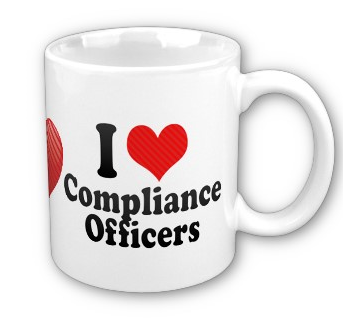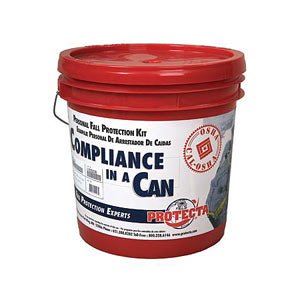Welcome to the New Year! It is my hope that 2014 will be a banner year for our industry. We should all, as industry professionals determine we will accept nothing less. Lord knows our industry professionals could use some financial relief.
Common sense Compliance is intended to be a three part series of articles exploring what this new term “compliance” means to those who service self-help repossession assignments. All three articles are also intended to be based on experience (as a member of the collateral recovery industry since 1961) observations and suggestions, and not upon judgments and accusations. These articles will also not be based on a “shootem up bang, bang” industry as depicted on TV by the totally non-professional slugs whose egos would make them an enormous liability for lenders and recovery agency owners. Those scripted TV shows have hurt the reputation of all professionals who serve this industry.
With the creation of the Consumer Financial Protection Bureau (CFPB) compliance issues for the lending industry and their “business associates” (us) has become paramount in addressing consumer protection within the lending and collateral recovery process. In developing these common sense compliance articles the RISC team did extensive research and review of the following:
1. CFPB website information related to the lending community and lender “business associates.”
2. Applicable federal laws including the Gramm, Leach Bliley Act (GLBA), FDCPA, SCRA, TRPPA, EEOC, along with state laws that impact the self-help repossession process and consumer (public) protection and safety.
3. Personal meetings and communications with many of the major lenders.
4. Conferences and seminars related to CFPB, lender and business associates compliance issues.
To try to determine what these new compliance mandates are now, how they will evolve in the future and how they will affect us as collateral recovery specialists I suggest we take a step back and try to look at these trends from a common sense point of view. The name, (CFPB) itself gives us a starting point….consumer protection in all aspects of the financial process which we are a critical part since the services we provide are a very important part of that process. So, from a common sense perspective what can we as industry professionals do to address the “safety and welfare” of the consumers (public) that we deal with? We would like to give a few suggestions that we believe will go a long way in meeting not only the (CFPB) compliance requirements as well as the additional federal and state laws that regulate our activities as collateral recovery specialists:
1. Professional Certification: The importance of industry recognized professional certification is critical to the safe and legal activities that we perform, not only for the business owner but also their employees that are physically involved in recovering lender assets and collateral. This should be a “no brainer” for an industry deemed by the courts to involve “inherent risks.” Professional credentials are not only important to getting the job done legally while managing the risks but is also critical in ensuring consumer safety and protection. In addition, in the event of litigation one of the primary considerations by the courts is professional credentials. After being retained to provide expert opinions in more than 25 lawsuits alleging Wrongful Repossession resulting in Breach of the Peace, bodily injury, violation of the FDCPA, death, etc. I can speak with some experience regarding how the courts consider professional credentials. In such litigation the lack of professional credentials (certification) negligent hiring is one of the primary allegations.
2. Protection of Non-Public Personal Information: Another no brainer and a primary issue under the new (CFPB) and Gramm-Leach-Bliley Act (GLBA), and state consumer protection laws. For this reason the RISC staff spent many hours doing the research which resulted in the creation of our Compliance and Operations Manual which addresses accepted procedures for the protection and disposal of non-public personal information (NPPI) and also addresses industry Best Practices. This issue and this Manual go to the heart of why the CFPB was created.
4. Best Practices: Accepted Industry Standards are critical to success in any profession and especially critical to a high risk profession in order to help control and/or mitigate risks. Industry Standards are another very important part of addressing consumer safety. As previously mentioned, our RISC Compliance and Operations Manual includes a section on industry accepted Best Practices and as also mentioned, this unique Manual is available to all RISC members at no cost.
5. Third Party Verification of Criminal/Bankruptcy Background Checks on Agency Owners: This third party verification is important to the lender client that is serious in hiring professional practitioners as well as meeting (CFPB) compliance mandates. Such third party verification further ensures the creditor that they are not dealing with convicted felons, drug addicts, sex offenders, pedophiles, those who may have shown a propensity for violence, etc. As to such background checks on employees, based upon our personal meetings with representatives of the Equal Employment Opportunity Commission (EEOC) and accepted Best Practices those background checks should be done by the recovery agency owner to further ensure consumer safety and to ensure that only the recovery agency owner and his/her client has access to employee non-public personal information (NPPI). Remember, employees are also consumers and have the same rights of privacy as any other consumer. If the client also requires financial information on the recovery agency and owner that information, like employee background checks should be released by the owner directly to the client. Employee background checks and financial information should not be a part of the third party verification process.
6. Consumer (Debtor) Personal Property: The requirements for the inventory and protection of personal property found in/on collateral that has been recovered and notification to the consumer is well addressed by established case law and is an important aspect of consumer protection. The C.A.R.S. National Certification Program has a procedure for handling consumer personal property that meets both state and federal guidelines.
7. Storage Facilities: If you store recovered collateral it is necessary to have storage facilities that are sufficient to protect that collateral. Generally, your insurance carrier will require that you have at least a 6 foot chain link fence and that the facility is lighted at night. Cameras and alarm systems are not usually required although they do add extra layers of security and some clients are now requiring them. Proper protection of the collateral is important to your client and to the consumer whether the collateral is ultimately redeemed by the debtor or is sold at auction which usually creates a loss to the lender and a deficiency against the debtor.
8. Insurance: Proper insurance coverages for collateral recovery operations require a specific “package” of coverages to ensure that the debtor (consumer), the lender and the collateral recovery agency are covered for specific risks. RISC has a licensed insurance specialist on staff to assist not only RISC members but anyone (lender or recovery agent) who needs advice regarding the specific coverages necessary to address the collateral recovery process.
9. Third Party Verification Service Providers: The vetting process for ensuring that collateral recovery specialists have the professional credentials which meet the compliance requirements of the CFPB, and other federal and state laws is critical to the lender client. Therefore, it is important that the lender client ensure that this third party service provider has the professional credentials, expertise and proper insurance coverages to perform those services.
As we have previously stated in other RISC articles, compliance is not a dirty word. It is my humble opinion that in any profession there are, and must be, certain rules (compliance requirements) that are necessary to address the public (consumer) safety. Also, in my opinion, those rules or compliance requirements should be fair and equitable to both the consumer and the business owner because the business owner is also a consumer.  We are allowed great latitude under the Uniform Commercial Code (UCC) in recovering defaulted collateral without a court order. Therefore it is certainly reasonable that there should be sufficient training and oversight (compliance) to ensure the public (consumer), the creditor and the collateral recovery specialist are protected. I’m not a fan of over-reaching government intervention, only prudent oversight that allows our industry to operate safely and legally.
We are allowed great latitude under the Uniform Commercial Code (UCC) in recovering defaulted collateral without a court order. Therefore it is certainly reasonable that there should be sufficient training and oversight (compliance) to ensure the public (consumer), the creditor and the collateral recovery specialist are protected. I’m not a fan of over-reaching government intervention, only prudent oversight that allows our industry to operate safely and legally.
In our second article we would like to suggest how the CFPB might bring about better recognition, better communications and better working relationship between the lending community and professional practitioners within the collateral recovery industry. Our third article will address the importance of third party verification, how such entities should work and, working properly, how both the lending community and the collateral recovery industry can benefit.
RISC is recognized within the collateral recovery industry as a leader in the fields of CFPB consumer protection training, risk management and industry standard compliance requirements. RISC services include: RISC Vendor Compliance Reporting (VCR), Compliant Agent Network (CAN) membership, national certification through the C.A.R.S. National Certification Program, compliance vetting and training, continuing education courses, office and storage facilities inspections, business consulting, repossession insurance consulting, lock-smith training and supplies, automotive key codes, discount programs, and a $1 million Client Protection Bond for members of the RISC Complaint Agent Network. For more information please email RISC at services@RiscUS.com, call 866-996-RISC (7472), or visit our website at www.RiscUS.com.
Be safe,
Joe Taylor
Vice President
Director of Education
RISC












